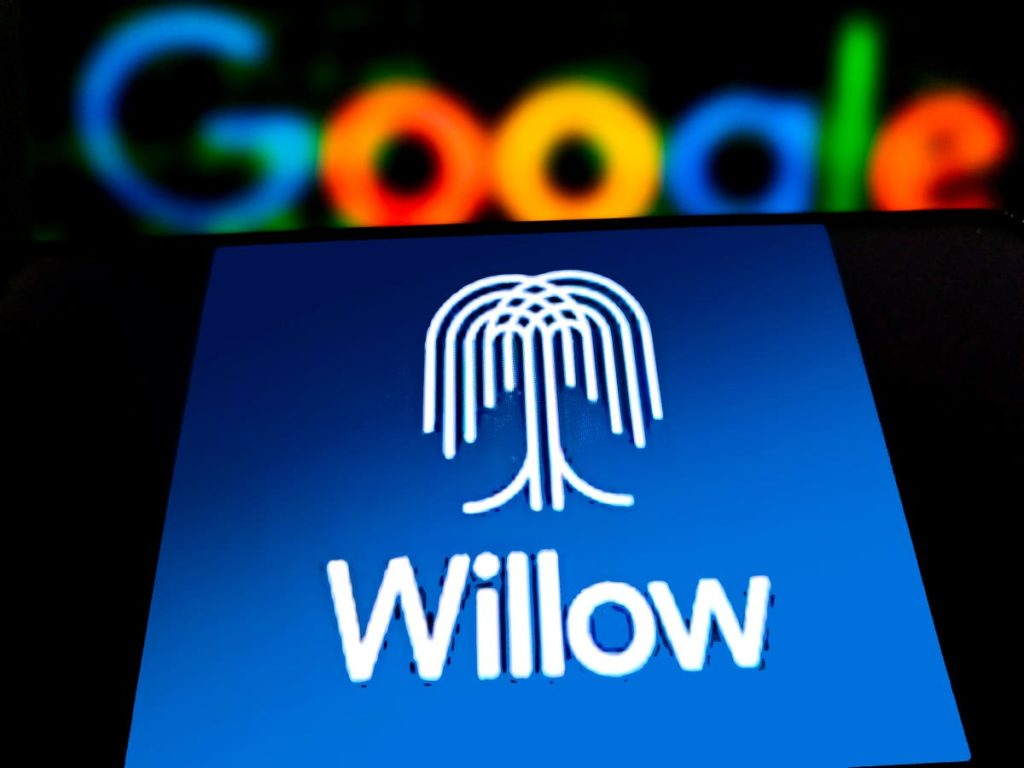Google’s Willow Chip: A Quantum Leap into the Future of Computing
Google’s recent unveiling of its Willow quantum computing chip has sent shockwaves through the tech world, promising a paradigm shift in computational power and potentially reshaping the competitive landscape for chip manufacturers. Willow’s performance, as demonstrated in a benchmarking test, is simply astounding. According to Google’s Quantum AI founder, Hartmut Neven, Willow completed a complex calculation in a mere five minutes – a feat that would take the world’s most powerful supercomputers an unfathomable 10 septillion years. This exponential leap in processing speed underscores the transformative potential of quantum computing and opens up a realm of possibilities previously confined to science fiction. The implications extend far beyond theoretical benchmarks, potentially revolutionizing fields like drug discovery, materials science, financial modeling, and artificial intelligence. Neven even posited that Willow’s capabilities lend credence to the concept of a multiverse, highlighting the profound philosophical questions raised by this technological breakthrough.
This achievement marks a significant strategic shift for Google, positioning the tech giant at the forefront of the burgeoning quantum computing race. While traditional chip manufacturers like Nvidia have dominated the high-performance computing market with their advanced GPUs and AI accelerators, the advent of practical quantum computing poses a long-term challenge to their established dominance. Quantum computers, leveraging the principles of quantum mechanics, possess the potential to tackle complex problems exponentially faster than classical computers, offering solutions to challenges that are currently intractable. This disruptive potential has sparked a surge of investment in the quantum computing sector, with startups attracting significant funding and established players like IBM and Google pouring resources into research and development.
Nvidia, while a leader in traditional computing, faces a critical juncture. Although the company has been actively involved in quantum computing research, collaborating with companies like Rigetti Computing and Quantum Machines, Google’s Willow chip demonstrates the rapid pace of innovation in this field. Nvidia must adapt and accelerate its quantum computing efforts to maintain its competitive edge in the evolving technological landscape. The company’s expertise in high-performance computing and AI could prove valuable in developing hybrid approaches that combine classical and quantum computing, potentially carving out a unique niche in the quantum era.
The emergence of quantum computing is not merely a technological evolution; it represents a fundamental shift in how we approach computation. Unlike classical computers that rely on bits representing 0 or 1, quantum computers utilize qubits, which can exist in a superposition of both states simultaneously. This allows quantum computers to explore a vast number of possibilities concurrently, leading to unprecedented computational power. However, the technology is still in its nascent stages, and significant challenges remain in building stable and scalable quantum computers. The development of robust quantum algorithms, error correction techniques, and the infrastructure required to support large-scale quantum computation are critical hurdles that researchers are actively addressing.
The financial implications of this technological revolution are substantial. The quantum computing market is experiencing explosive growth, attracting billions in investment from both venture capitalists and government agencies. The U.S. Senate, recognizing the strategic importance of quantum computing, has proposed a significant investment in research and development through the National Quantum Initiative Reauthorization Act. This influx of capital is fueling rapid innovation and driving the development of practical quantum computing applications. For investors, the quantum computing space presents both lucrative opportunities and inherent risks. While companies like Google and IBM are leading the charge, the potential for disruptive innovation from startups and established players like Nvidia should not be overlooked.
As we stand on the precipice of the quantum era, the future of computing is poised for a dramatic transformation. Google’s Willow chip serves as a powerful testament to the rapid advancements in quantum computing and the immense potential it holds. The coming years will witness intense competition and accelerated innovation as tech giants and startups alike vie for dominance in this nascent field. For established players like Nvidia, the challenge lies in adapting to this new paradigm, leveraging existing strengths while embracing the transformative power of quantum technologies. The companies that successfully navigate this transition will be well-positioned to thrive in a post-quantum world, while those that fail to adapt risk being left behind in the relentless march of technological progress. The quantum revolution is not just a technological phenomenon; it is a societal imperative that demands careful consideration from investors, industry leaders, and policymakers alike. Its impact will reverberate across industries, reshaping the very fabric of our technological landscape and ushering in a new era of computational possibilities.










